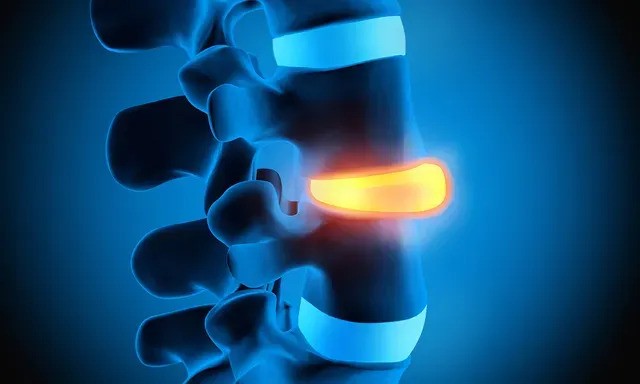Herniated Discs
Orthopedic & Spine Care located in Bristol, CT

Herniated discs are one of the top causes of chronic lower back and neck pain, often limiting your ability to enjoy life and leading to disability. Board-certified orthopedic surgeon Ashish Upadhyay, MD, MS, at Connecticut Advanced Spine in Bristol, Connecticut, provides comprehensive care for herniated discs, from conservative treatments to motion-sparing spinal surgery. Don’t wait to get relief for your back or neck pain. Call the office today or use online booking to request an appointment and begin customized care targeting your unique needs.
Service Q & A
What are herniated discs?
The discs between spinal vertebrae have a strong outer covering and a gel-like core. Over the years, the outer cover loses moisture, and weak areas develop.
A disc herniates when the inner gel bulges out through the weak area. The gel leaks out of the disc if the weakened area ruptures.
What symptoms does a herniated disc cause?
A herniated disc causes lower back or neck pain. A bulging disc may pinch the nerves, causing pain along the nerve and traveling through your legs or arms, depending on the herniated disc’s location.You may also have tingling in your limbs or develop muscle weakness. In severe cases, muscle weakness caused by a pinched spinal nerve makes it hard to walk or hold items with your hands.
How is a herniated disc treated?
At Connecticut Advanced Spine, Dr. Upadhyay provides holistic care for herniated discs, beginning with the most appropriate conservative treatment. He may recommend relaxing for a short time, taking nonsteroidal anti-inflammatory drugs (NSAIDs), and starting physical therapy.Some patients need a spinal injection like an epidural steroid injection if they have severe pain or their pain doesn’t improve with the first line of treatment. While a steroid injection doesn’t treat the herniated disc, it can significantly relieve your pain by reducing nerve inflammation.
If your pain persists despite conservative care, Dr. Upadhyay discusses surgery to repair the problem.
What type of surgery treats a herniated disc?
Dr. Upadhyay specializes in surgical procedures to remove part or all of the disc:Microdiscectomy
During a microdiscectomy, Dr. Upadhyay removes the damaged parts of your herniated disc, leaving most of the disc in place to support your spine. However, you may not be a good candidate for this procedure if the disc is severely damaged.Discectomy
A discectomy is a surgical procedure to remove the entire disc. After taking out the disc, surgeons have two choices for restoring stability: a spinal fusion or disc replacement surgery.Dr. Upadhyay specializes in motion-sparing spinal surgery, replacing the damaged disc with an artificial disc. Disc replacements allow that part of your spine to bend, twist, and move just like it did with your natural disc.
Call Connecticut Advanced Spine today or use online booking to schedule an appointment and begin treatment to relieve the pain and stiffness of a herniated disc.
